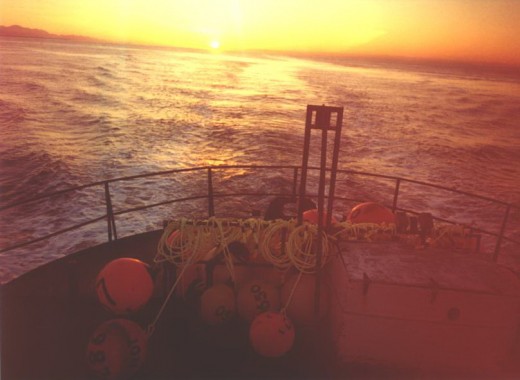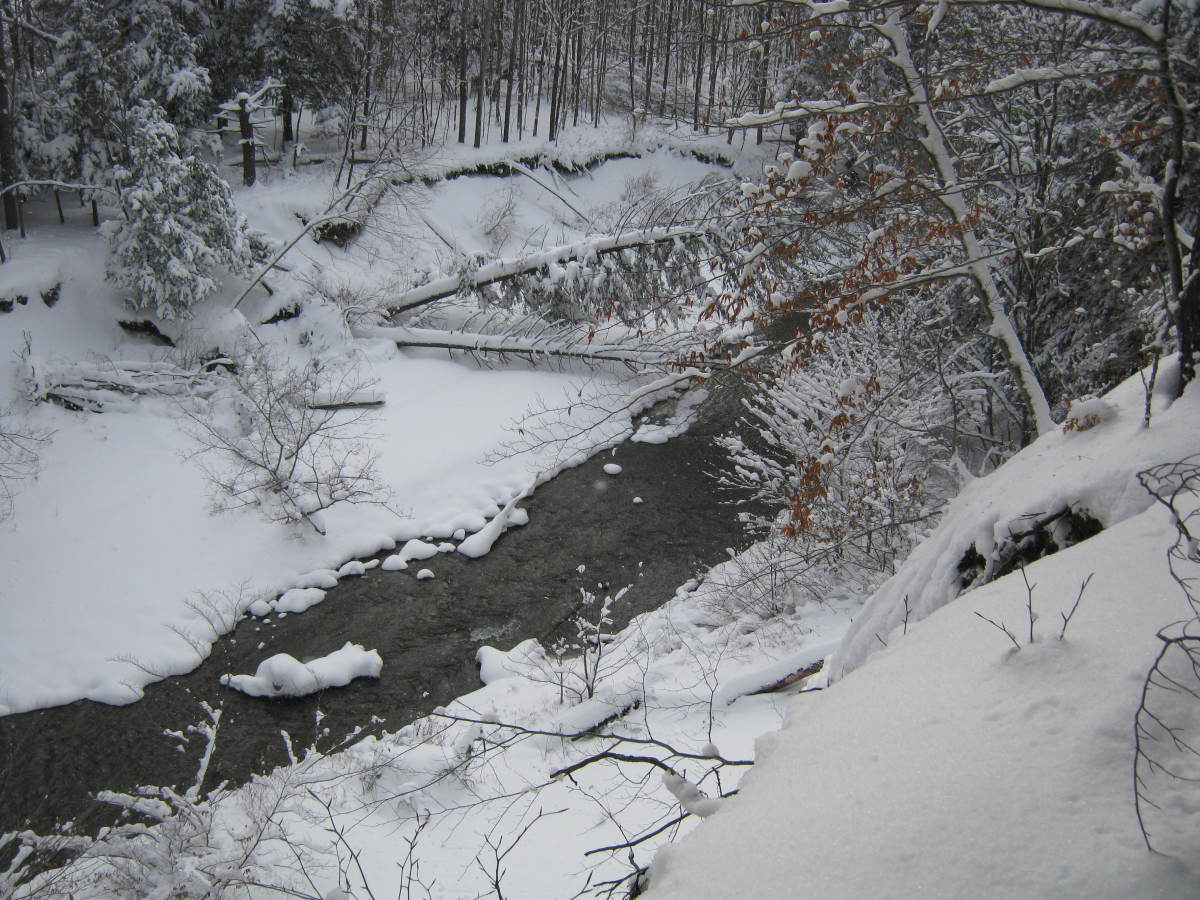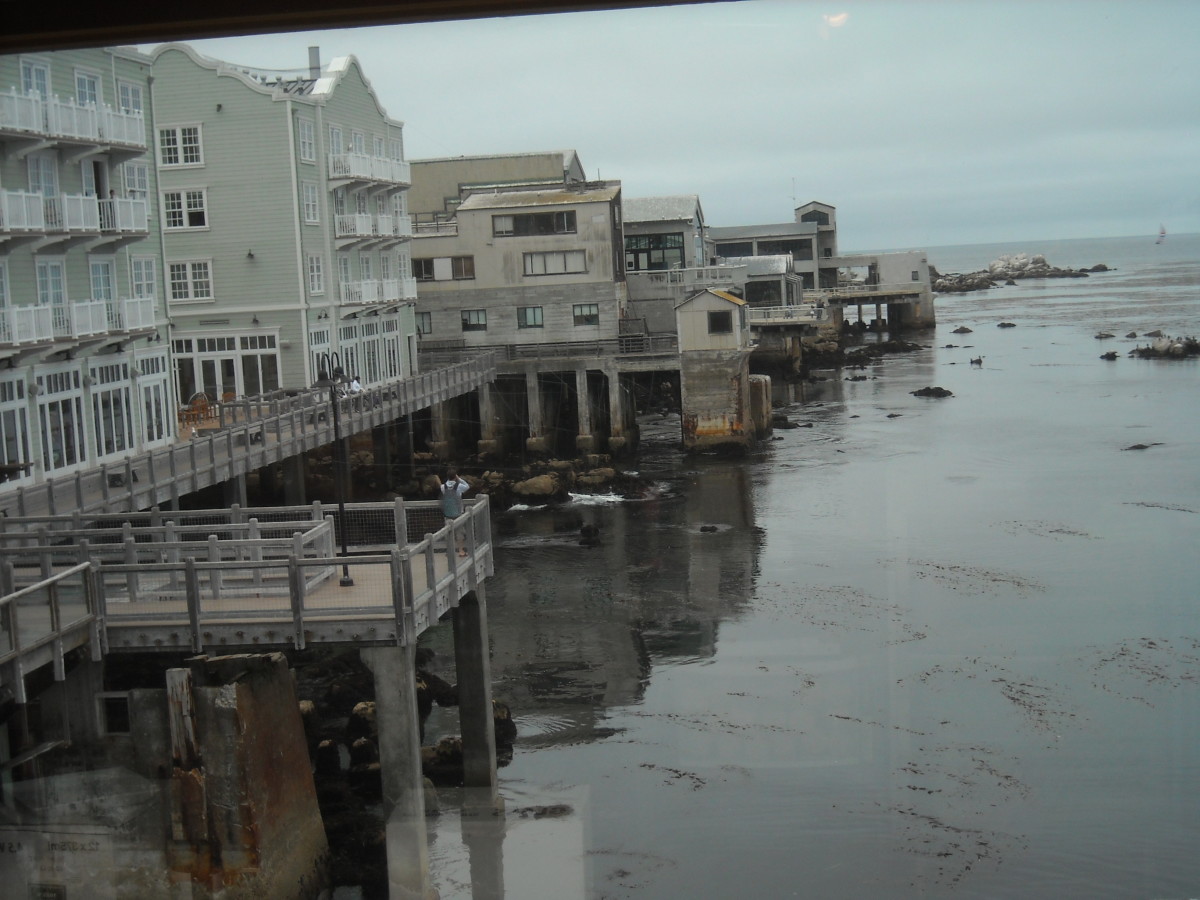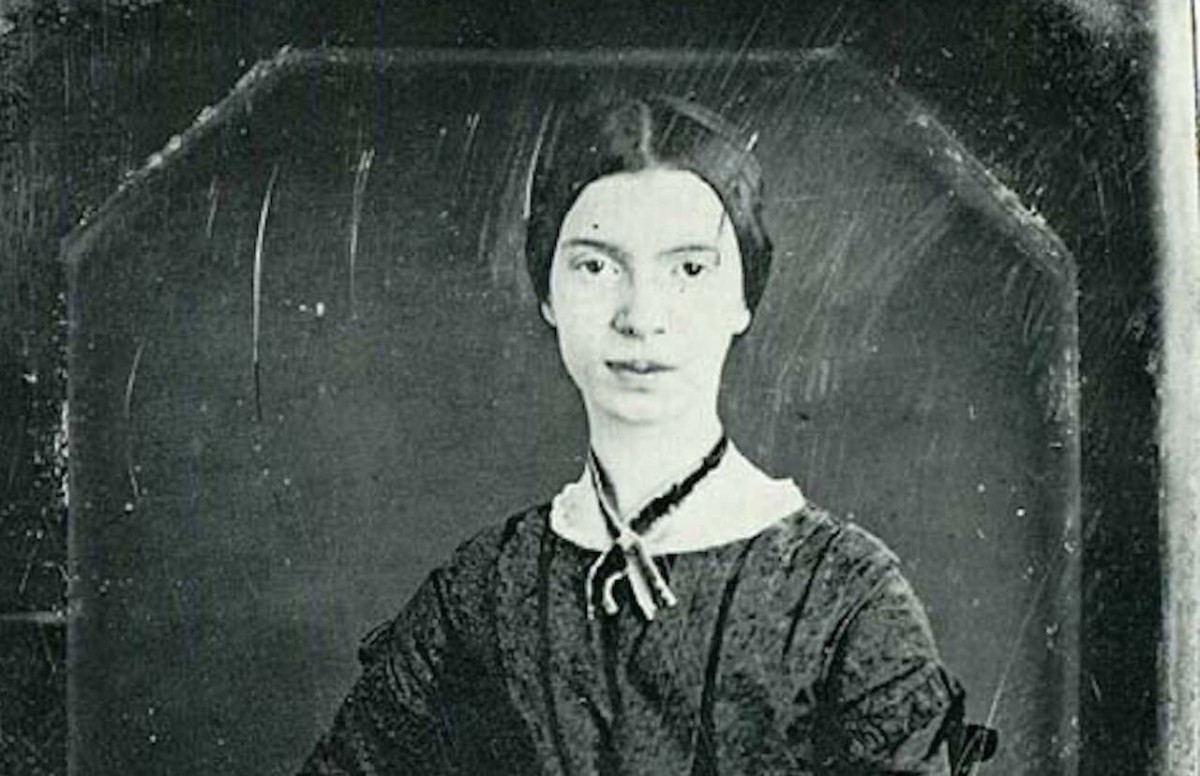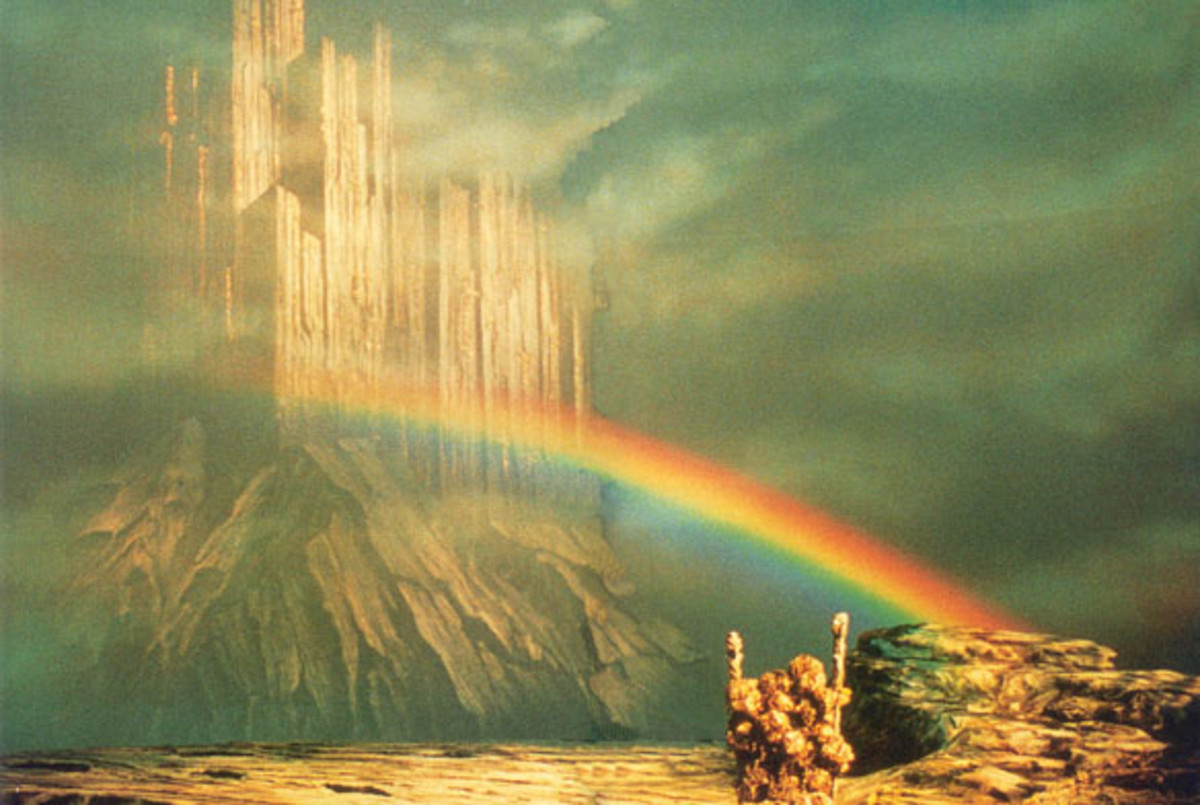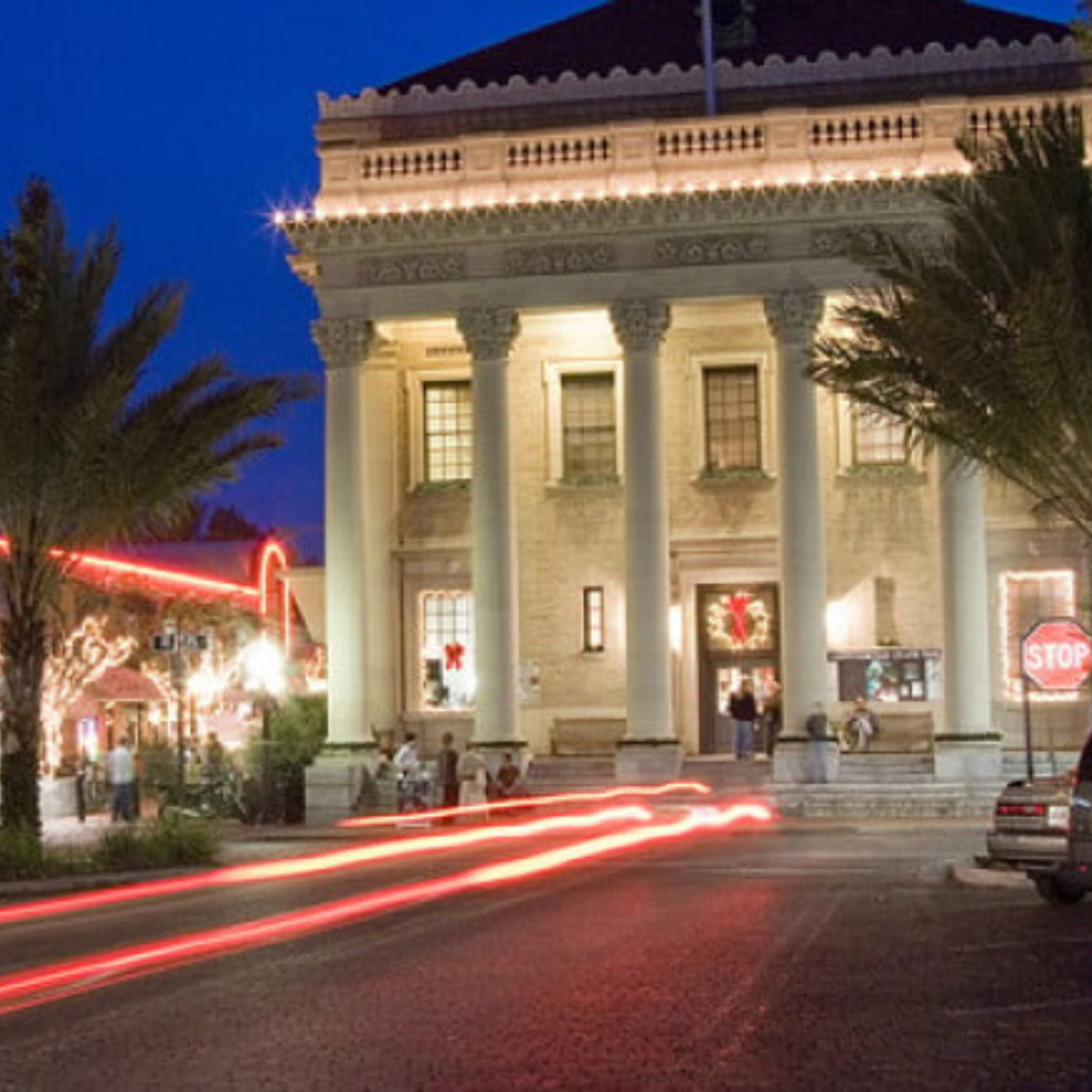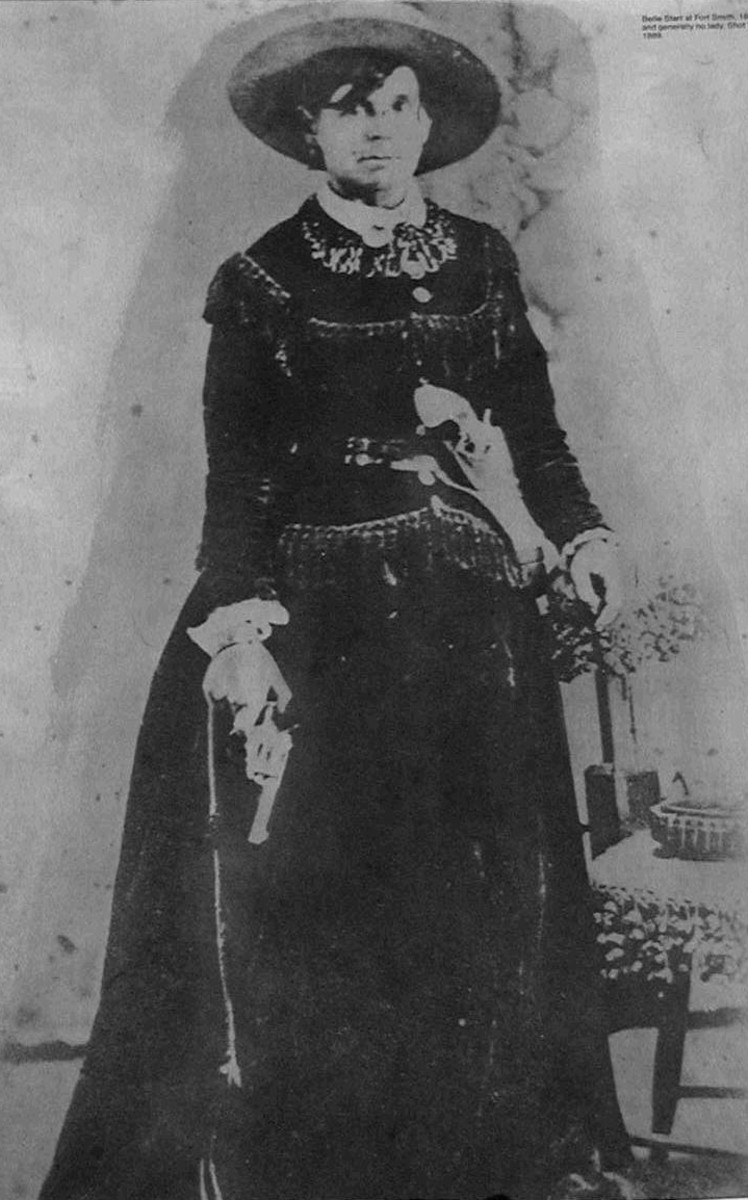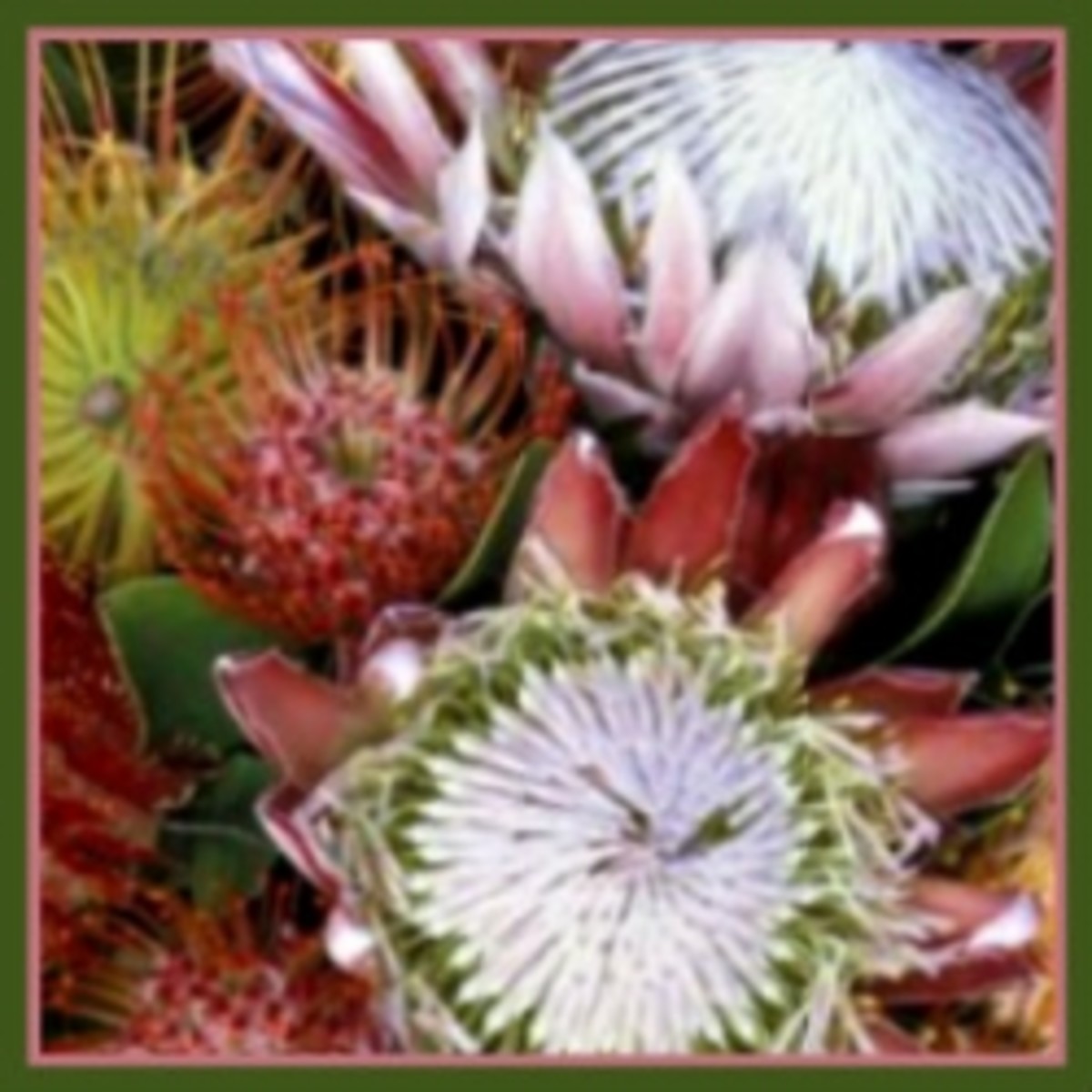Tempests, Tylenol, and Crab: My Adventure in the Aleutians
A tempest was approaching, and I laughed, howled really, at the absurdity of demanding such things of myself. The wind was unlike anything I'd experienced, yet my pride carried me on, up to the top of Pyramid Peak. As I made my ascent, the gales were little more than an annoyance, the shrieking, although harmless banshees of the coming storm. Upon gaining the zenith though, a sobering and distressing realization set in: Wind had never exerted such a physical presence in my life prior to this moment, had never forced my movements...had never completely blinded me.
Unalaska, a fishing village located smack dab in the middle of the Aleutian Islands, is at once arrestingly beautiful, and at once fiercely wild. Could I ever forget that morning, when our twin-engine Cessna puttered high above the Bering Sea, as a fiery, blaze-red sun rose in a place I'd never seen it rise before? Our approach to the island can only be described in the terms of a childhood fantasy land: mystical and mysterious, awe-inspiring and fearsome. A thick fog enveloped the plane, but distantly, rising from the frigid waters of Dutch Harbor, silhouettes of massive rocks appeared, like ancient guardians of the island, dutifully maintaining their post for centuries. With fearful precision, our craft touched down upon a landing strip seemingly appearing out of nowhere, and with that, my winter in the Aleutians had begun. A winter defined by brutal sixteen-hour work days aboard a fishing vessel, piles of writhing opilio crab, and the breath-taking panoramas of the rugged Aleutian terrain afforded me during my much too uncommon recreational hikes.
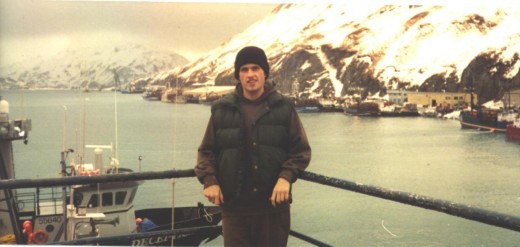
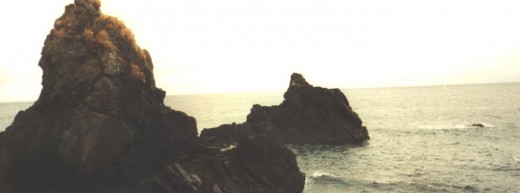
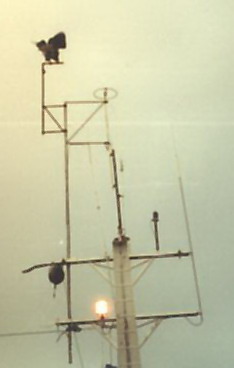
The landscape of Unalaska is fascinating. Though there are no trees to speak of, the dominant, pyramidal hills that dot the landscape are covered in a tundra-like growth of lichens, mosses and dwarf shrubs. In the summer, this fertile landscape is a visually stunning array of verdant green outlining a blazing blue sky. In winter, under an oft-overcast firmament, the predominant color is white, dabbed with shades of brown, grey and cerulean.
My passion for hiking may best be described as more of a necessity to reach , or best, peaks, and as evening approached, the peaks, in the face of a looming storm, taunted me. Soon after gaining the pinnacle, I was forced to huddle in the dark recesses of a WWII bunker, fighting a losing battle against fear and assessing the situation as rationally as one might be expected to.
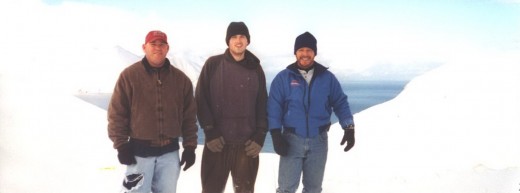
I was atop Bunker Hill, an area of Unalaska built up for military engagements with Japan. All thoughout this region, there are remnants of the war everywhere, such as pill boxes, tunnels and gun turrets. Thankfully, there was an old service road winding up the hill as well; probably my only hope of getting off the rock with minimal injury. So walking backwards, with great labor and concentration invested in every step, I stumbled my way to the meandering gravel road. No sooner had I reached this point than the wind subsided, the clouds parted, and I was rewarded with a fabulous, panoramic view of the terrain below, glowing and shimmering in the setting sun.
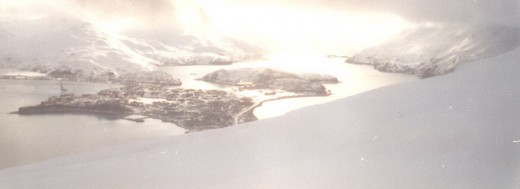
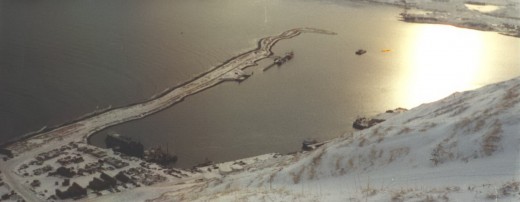
How it Began
An ad in the Oregonian led me to to the lobby of Shiloh inn, in Vancouver, Washington, and there the pitch was begun. It didn't take long for me to realize that in the business of cannery employment, it's not the potential employee who has to persuade the cannery for work, but rather, the other way around. In addition to terrible pay and sixteen-hour long shifts, an Alaskan cannery employee is subjected to the cold, wet conditions involved in wholesale sea-creature slaughter and the verbally abusive and inarticulate barkings of bosses too inept to succeed in little else, imbued with power trips stemming from an all too appropriate sense of self-loathing. (Yeah, I'm still a lttle bitter, so sue me) But to me, it sounded wonderful. Three months in Alaska, battling the cold, bitter winds, just to make a cheap buck at the expense of thousands of opilio crab. The interview process was more or less a sales pitch highlighting the positive and completely avoiding the negative. If you could speak enough English to answer yes to the question, "do you speak English?," you were hired.
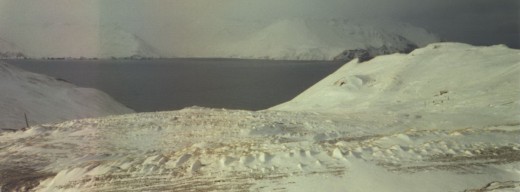
A flight out of Seattle took a group of us to Anchorage, and after a nearly disasterous nap in the airport ("We'll make sure to wake you up before your flight leaves," they said. No one did), we were crammed onto a twin-engine plane seemingly heated by nothing more than the warmth of our own bodies. After touching down in Unalaska, I recall thinking just how rugged and brutal the land appeared to be, and it struck me as the sort of place where the snow never stopped falling and where the wind always blew. As we were shuttled, military fashion, to our new home in Icicle Seafood's big, blue barge, I knew that despite how horribly miserable this endeavor may turn out to be, no matter how many appendages I lost due to frostbite, grumpy crabs or disgruntled workers, I would have some great stories to tell.
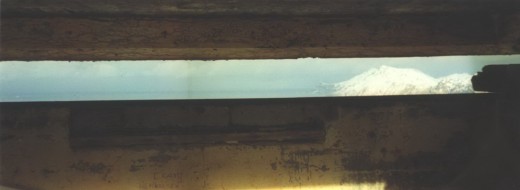
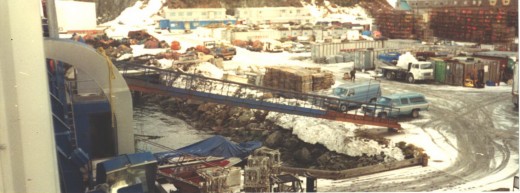
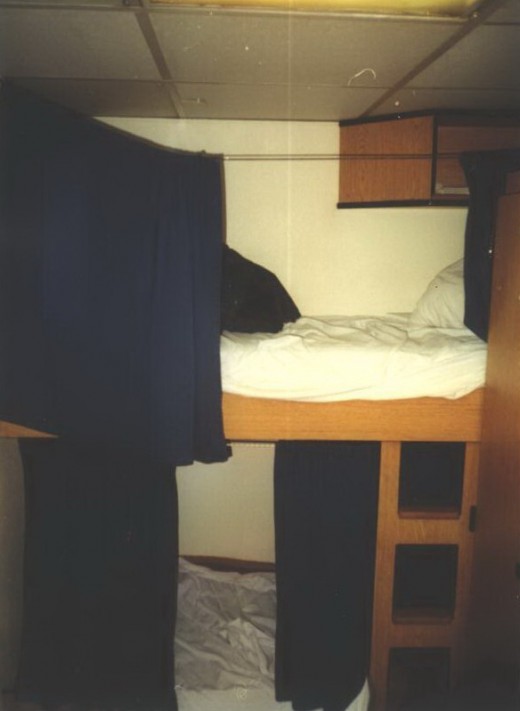
For two weeks, no work came. The rocket scientists at Icicle Seafoods seemed to be unable to coincide our arrival with that of the fishing boats, so for the next fifteen days, I played chess and scrabble, read the entire Old Testament, and hitchhiked to the only hotel in town to play the grand piano they had in their cocktail lounge. And I hiked. Like crazy. It was hard for me to understand how anyone wouldn't; the area was just so beautiful. Atop a high peak, the sheer whiteness was blinding, bald eagles were everywhere, and aside from their occasional cry, the silence was deafening.

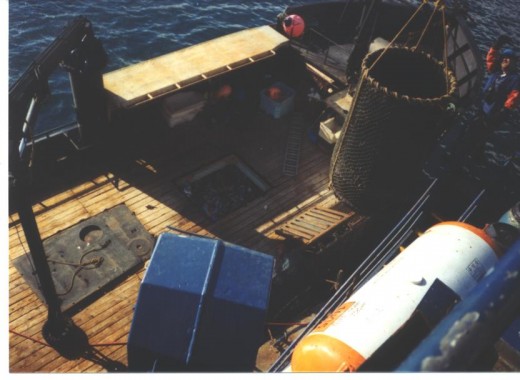
Soon enough, the vacation was over. If magnificent hiking in the Aleutians is heaven, merciless slaughter in a cannery is hell. Fortunately, I played my cards right, and signed up to be a pitcher. There are numerous jobs around a cannery, and one's size, strength, and overall resilience determine exactly what job one will get. The freezer was for the big guys: Huge carts of seafood weighing hundreds of pounds were wheeled into freezers, and if Alaska wasn't already cold enough for you, this was the place to be. Those with the ability for mind-numbing repetition belonged on the killing floor: The room where the majority of processing took place; one of conveyor belts, sharp objects, and an overwhelming stench. Pitching was, in my opinion, the best job to have. As a freezer employee so aptly, and somewhat strangely expressed, "In the war against fish, pitchers are the front-line infantry."
And so it was. As the crab boat docked to the side of our floating, oversized trailer-home, we jumped on deck, and entered into the holding pit. Sometimes it was full to the brim, and we literally dug our way to the bottom through thousands and thousands of angry crab. Other times, a ladder was necessary to enter, and looking down into the damp, shadowy, room, all one could see was an animated, writhing floor of decapod crustaceans, clicking their claws as thick exoskeletons scaped against one another. With thick leather gloves not impenetrable to the pain of a crab's claw pinch, we tossed the opilios, four at a time, into the brailer; an oversized basket attached to a crane. When the brailer's digital scale indicated its weight at around 1500 pounds, the contents were dumped into the processing floor, and the crab suffered a brutal, though quick execution.
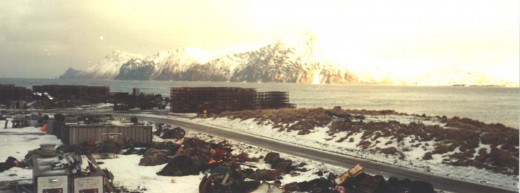
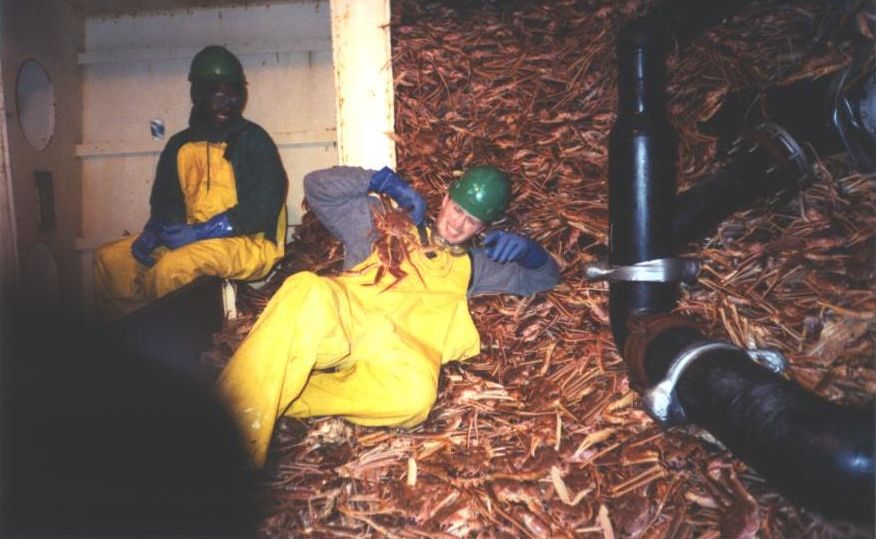
For sixteen hours we kept this up, and wow, did I feel it. The eight hours we were afforded between shifts was meant for sleep, but after staring at a flesh-colored, moving wall for sixteen hours, this was easier said than done. I remember the first night I closed my eyes. All I could see was a wall of pulsating crab, disappearing only when I opened my eyes or fell asleep. Waking up was hardly better, as I could barely move. My fingers felt broken, my back and neck were stiff, and six hours of sleep hardly felt sufficient. Needless to say, I became great friends with Ibuprofen, coffee and Tiger Balm. Without them, getting over the initial pain was a struggle I wasn't willing to face.
In many ways, the first week of work was comedic. Perfectly healthy people, so excited to begin the first shift mere days ago, suddenly fell ill to every sort of malady they could dream up. Under contract, the only way to get a free ride home was to sustain an injury, and as the hell began, so too did the amazing feats of imagination. Some swore to broken bones, others suddenly recalled old injuries they had initially failed to mention, another, my favorite, developed an allergy to crabs. But who could blame them? The money stunk, the work was relentless, and all over Dutch Harbor we heard legendary tales of the vast amounts of money to be made at other canneries, at warehouses, and most lucratively...on crab boats.
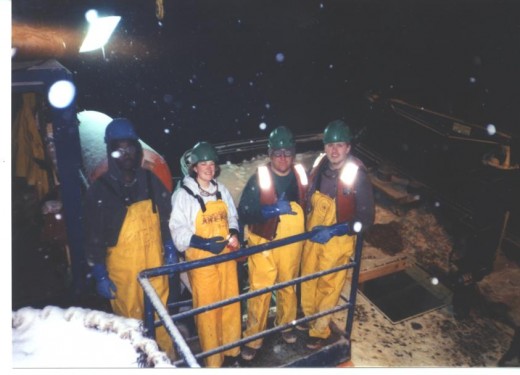
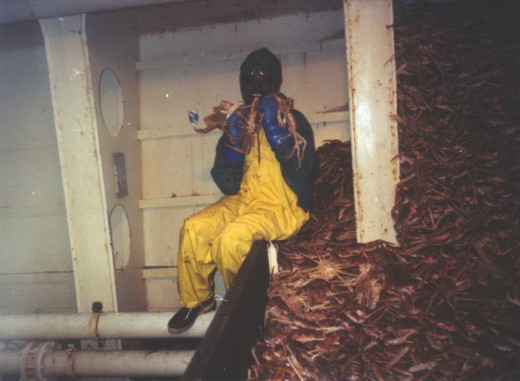
Days turned to weeks, crab season finished, and cod season began. The sunshine that had illuminated our spirits and the snowy peaks surrounding us had been hidden behind the grey pallor of Aleutian clouds for weeks, and I was feeling it. Cod season was nothing like crab. Work was spotty at best; a boat would arrive, we'd pitch it in two hours and wait three days for another, all the while not getting paid. The day of the fateful night of my departure, I had been looking for union work in town, trying to get any job possible to stave off the depression fueled by the tedium of inactivity. After yet another unsuccessful day of job-hunting, a friend and I came to an agreement on the most appropriate course of action: Two fifths of whiskey, and a two-liter of Coke.
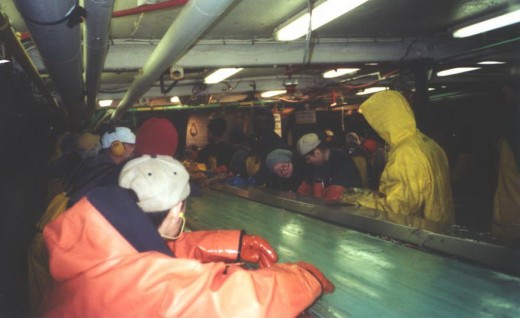
The Bering Star, as it was so unsuitably named, was a dry boat. One drop of alcohol on your person was grounds for immediate termination, and I took this seriously; for a while. As it turned out, the majority of our deck bosses were drunks. Trips into town with them inevitably turned awkward, as I maintained my sobriety while they barked orders at waitresses and professed their love for me. (Jokingly, I think) We were often rewarded for our hard work with alcohol, and it seemed those in charge, and the people they liked, were exempt from this "not a drop" decree.
As luck would have it, myself and two other friends were nearly polishing off the last of our whiskey when a crew boss knocked on our door. As I said, he couldn't have cared less about the smell of cheap whiskey emanating from the room, he had important news: A cod boat was en route, and at approximately midnight, would arrive at the Star. Needless to say, this was not good. Crossing over from barge to boat was dangerous enough sober, and the method of pitching cod entailed using sharp, hand-held hooks called gaffs. I had injured myself once before with one of these, when the bottom lip of a fish ripped open, releasing the forty pound weight and sending my gaff directly into my chin.
However, Injuries would prove to be the least of my worries. At the time, mine was a cranky temperment, and though physical aggression was rarely, if ever, carried out by myself, whiskey has a way of bringing out the worst in a person. To make a long, embarassing story short, I picked a fight with a guy who probably outweighed me by thiry pounds, and had at least half a foot on me in height. Luckily, he decided against beating me to a pulp, but unluckily, a fellow crew member didn't decide against ratting me out.

In no time at all, the ship was pitched clean, and after an extremely greasy breakfast, I melted into bed. To no surprise (and yet somehow, I was), after two hours of sleep I awoke to the sound of violent rapping on my tiny dorm room door. Seems the head deck boss was fairly adamant on seeing me, so with a splitting headache and a suitable sense of impending doom, I made the walk of shame into Ron's "office."
Despite near-pleading on my part, my entreaties fell on unsympathetic ears. Ron was, of course, painfully aware of the slightly, less-than-righteous proclivities of his crewmates, but even though I had earned the respect of my bosses through hard-work, the reality was, I was still a grunt. But more crucially, I had been ratted out by one of my fellow pitchers, who had even gone so far as to prepare a written-statement while I slept, just to really sink the dagger in. (On a related side-note, I'm fairly certain this was revenge for my less than friendly refusal of her attraction towards me. Hell hath no fury like a cannery-working Oregon girl scorned).
So numerous apologies and a quick breakfast later, I was ejected from the barge like a 200 pound piece of jetsam. And walking down that rugged, gravel road, as the morning sun shone and a refreshing winter breeze blew, I all at once felt excited, relieved, and ashamed.
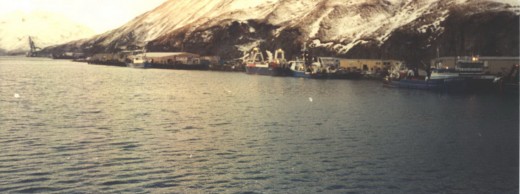
My walk of shame, accompanied by a forty-pound dufflebag and a splitting headache, was further overcast by a looming decision: either I cash my last check and walk straight to the airport, or I stay here, at the end of fishing season, and somehow, against the odds, find some means of employment to make this trip even slightly worthwhile. I remain forever grateful that despite my adolescent and immoderate evening of foolishness, the good Lord practically made my decision for me. Ahead of me, a black pickup truck approached, and to my surprise, skidded to a halt after reaching me. The driver, a hulking, white-haired Icelander by the name of Gunni, needed one man to assist in retrieving crab pots on the Bering Sea. With no hesitation, I consented, and was soon on the board the sixty-foot vessel of Captain Gretar, enduring a lecture on work ethic in relation to sea-sickness. "If you're sick, you go throw up and get back to work! Got it?" I answered in the affirmative, followed by the loud, stereotypical gulp so often exhibited by those in the grips of fear.
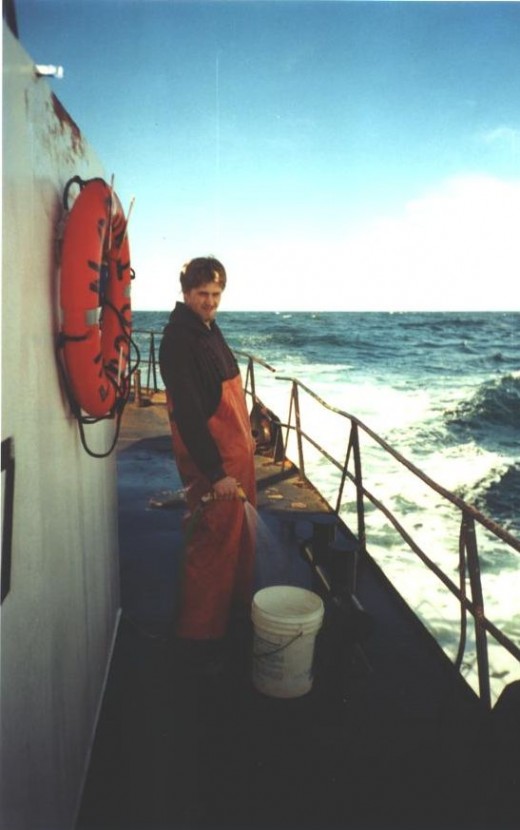
My work aboard a crab boat was fairly gratifying. I learned some knots, cooked some dinners, and had a hand in the process of crab pot retrieval, which, if you've seen "Deadliest Catch," is every bit as hard as it looks. On several occasions, what we pulled from the sea proved to be our dinner. I recall on one occasion, as I knelt above three, large, flopping cod fish, holding a butcher knife and poised to strike, a voice of restraint, commanding yet gentle, reminded me the quickest, most humane way to kill a fish. Gunni, the man who had saved me from my near inevitable walk to the airport, was an amazingly tough, surprisingly kind-hearted man who never missed an opportunity to remind us that everything we consumed from the waters below was "a gift from the sea, a gift from God." I had, admittedly, become slightly desensitized to the notion of taking life while working in the cannery. Gunni, a man pushing sixty who had made a career out of killing and selling creatures from the sea, still possessed the most human of qualities: Gratitude, compassion, and gentleness.
The Relatively Unknown WWII History of the Aleutians
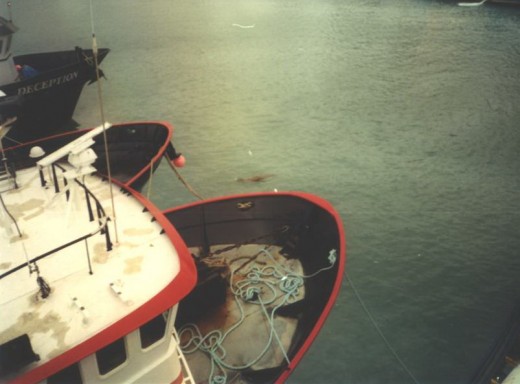
In so many ways, working for Gretar was terrifying. Not only did we contend with twenty-foot swells the first night out, but Gretar rarely cracked a smile, and usually held an expression that seemed to indicate that if I fell off the side he would fish me out just to kick my ass. For one week we were out, pulling up pots and tying them together on deck. Between spots I cleaned, cooked, washed windows and learned knots, and the whole time I felt, and worked, like I was in the army. The captain had that effect on a person. In one way, I feared him, and worked at a feverish pace so as to avoid his wrath, but in another, I respected the guy, and it was a deep desire of mine to impress someone of his caliber, to show him I had what it takes. Part of my pay was a free ride to Seattle, via boat, so for about five days, I lounged in the galley, watching old movies and greatly appreciating my opportunity for leisure.
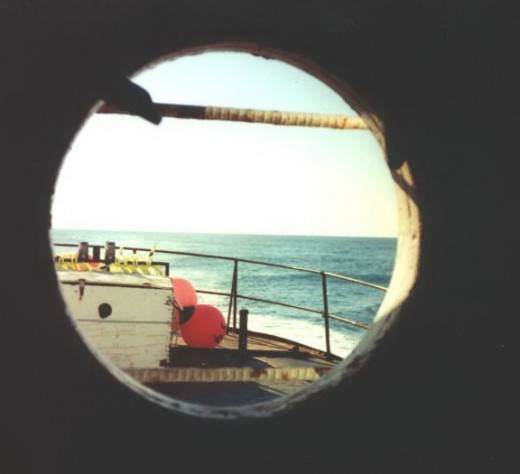
Our arrival in Seattle was surprisingly one of the coolest aspects of my whole experience. As insignificant as it may sound, I was quite in awe of the entire process of entering a city harbor. Passing throgh a lock was an interesting procedure, and making lines of traffic stop while we passed under one of many bridges filled me with mischievious delight. The pinnacle to my trip though, occurred well after the work was done. In a bar in Seattle, sharing a pint with Ty, a fellow deckhand who possessed much more experience than myself, I was let in on a secret. Gretar, the fuzzy-eyed, Iceland native, who probably ate glass and cried icicles (if he ever cried), was impressed with my work ethic. "You've been accepted by the toughest guys on the . planet," Ty said, as he clinked my glass in a toast. Those words alone made the whole ordeal worth it, and in a way, it was my rite of passage into manhood
Days later, safe in my bed in Portland, I awoke, warm and content, with the realization that in Alaska, the beauty of the earth's wilderness is intimately connected with her rage. This is the true beauty of adventure: the epiphanies, the revelations, and the enhanced awareness that come from the shrugging off of one's comfort level. My winter in the Aleutians, aboard crab boats and canneries, on choppy seas and blindingly white mountain-tops, was truly an unforgettable adventure, but one I hope to never do again.
